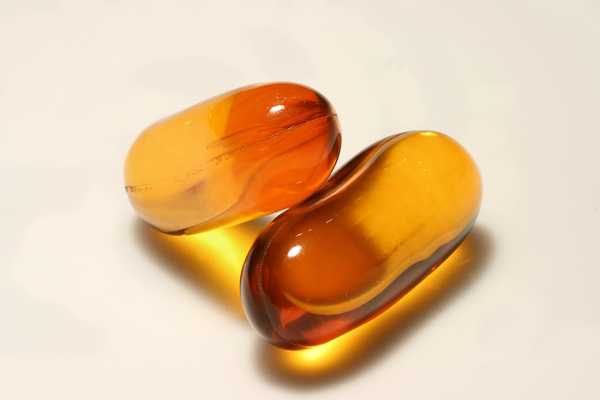How To Find The Best Omega 3 For Dry Eye
There are quite a few ways to treat dry eye. Many people actually get the most benefit from a few simple treatments. Fish oil, specifically the omega-3 fatty acids in fish oil, is one of those simple treatments and is actually turning in to a very powerful solution for dry eye!
Omega-3 typically comes from fish. These omega-3’s exists in a ratio with omega-6 which comes from corn and vegetable oils. While omega-3 provides certain anti-inflammatory properties, omega-6 are more pro-inflammatory. Over time, our diet has changed, causing an increase in the amount of omega-6. This imbalance of omega-6 to omega-3 causes changes all over the body including the natural oils on the surface of the eye.
One of the main causes of dry eye is that the tear film on the surface of the evaporates too quickly. This is caused by an oil layer on the surface which just isn’t right. Natural oils aren’t being secreted properly and the oils just don’t have the right consistency to stick around.
Fish oil supplements help to restore the optimal balance in the chronic battle between omega-6 and omega-3. This allows the tear film to return back to normal and frequently leads to dramatic improvement in dry eye! Omega-3’s have become a staple in the treatment of dry eye.
Natural Omega-3
What if I told you can treat dry eye simply by eating different foods! No, this isn’t any sort of fad diet. There are actually certain foods which provide a real benefit to maintaining healthy eyes. And the cool part is that these foods can be quite delicious! 😋
So where does most of this natural omega-3 come from? The fact that this is also called fish oil gives a hint!
Fish can be a perfect source of omega-3. And adding more fish to your diet at least 3 times a week can improve dry eye. Salmon and mackerel are especially high in omega-3.

Delicious Salmon
There are other foods that contain a higher amount of omega-3. Certain seeds such as flaxseed are also high in natural omega-3. This works, but it isn’t quite as good as getting omega-3 from a fish source.
So next time you cook up some salmon fillets on the grill, you have a very tasty delicious way to treat dry eyes.
Are All Fish Oil Supplements The Same?
Because of the benefits of fish oil or omega-3, supplements of these have become quite a hot commodity. Countless bottles line the shelves of every grocery store and pharmacy. Some seem pretty cheap. Some a bit more expensive. So what’s the difference? Isn’t it all just omega-3 anyway?
Not all omega-3 supplements are the same! There are two main varieties out there based upon how they are created. There are ones that are ester-based and ones that are triglyceride-based.

Omega-3 In Supplement Form; Image by Marco Almbauer / CC BY-SA
If you pick up a random bottle off the counter, most likely it will be an ester-based fish oil supplement. For the longest time, triglyceride-based supplements just didn’t exist. There were really only a few options and they were more expensive than the other options. The most popular ones being made by PRN and by Nordic Naturals.
Eventually it was discovered that the triglyceride-based supplements work better! These supplements get absorbed in the body better and are more active. As a result, they more closely mimic what natural omega-3 from fish does in the body. The ester-based supplements just don’t have the same effect.
Since the discovery of the benefit of triglyceride-based omega-3’s, there are a few more manufacturers that have started producing the good stuff. Look for “triglyceride” or “TG” on the bottle to confirm, and enjoy healthier, more comfortable eyes.
How Do I Get Omega-3 As A Vegetarian?
Omega-3 can be naturally found in fish. To obtain all the health benefits that omega-3 provide, having a balanced diet with multiple fish dishes throughout the week can provide all the omega-3 you need. Eating fish all the time just doesn’t work for a lot of people and thus scientists have figured out how to extract the omega-3 from the fish and place it in a pill. This highly purified omega-3 works for plenty more people. However, for vegetarians and vegans, it can still be problematic that this omega-3 originally came from a fish.
Not all omega-3 comes from fish, however. There is some omega-3 that comes from seeds. Flax seed can be a good source of omega-3 for vegetarians. In addition, there are some companies that extract even more potent omega-3 from algae to create vegetarian and vegan friendly forms of omega-3 supplements. Thus, it isn’t too difficult to find an omega-3 which satisfies your dietary restrictions.
.jpg)
Vegetarian sources of Omega-3; Image by Veganbaking.net from USA / CC BY-SA
Flax seed and algae omega-3 do not come in as high of concentrations as the fish oil omega-3. For some vegans and vegetarians, however, this may not be an issue. Omega-3 supplements work to balance the effects of excessive omega-6 from our diet. This imbalance between omega-6 and omega-3 has developed as our diet has evolved to include more oily and processed foods. If you make an effort to avoid processed oily foods and eat healthier more natural foods, than it’s very likely you won’t have as much imbalance of omega-6 to omega-3. Thus, less omega-3 is needed to supplement the diet.
Omega-3 has been found to be helpful for a very large amount of the population. Vegetarians and vegans need not be excluded from this group.
Related Articles
Also check out EyeMountain.com for more great eye articles
Please note: The general information provided on the Website is for informational purposes only and is not professional medical advice, diagnosis, treatment, or care, nor is it intended to be a substitute therefore. See the Disclaimer and Terms of Use for more information
.jpg)